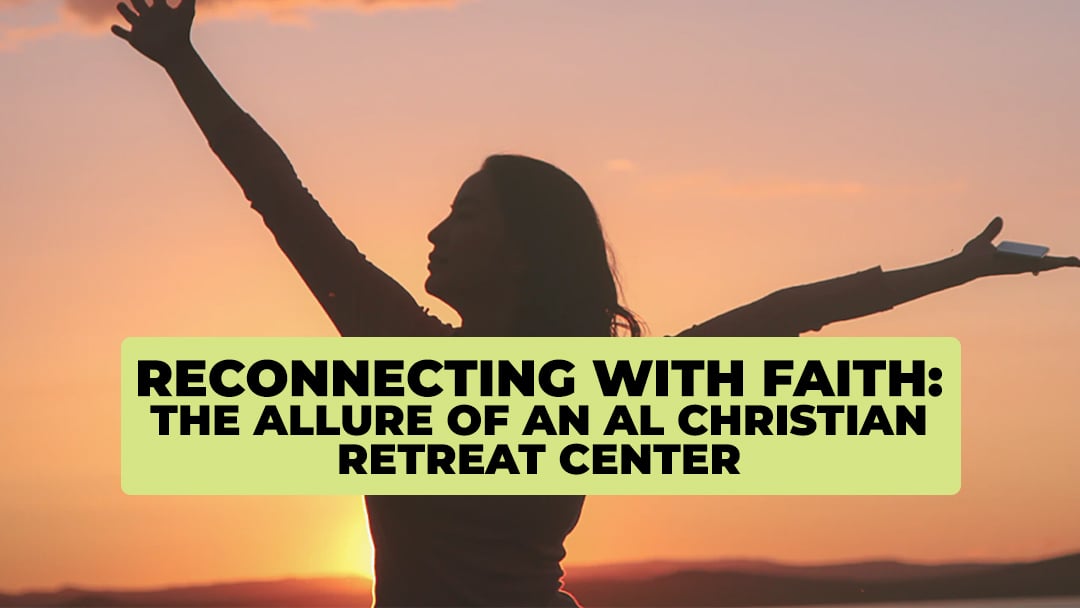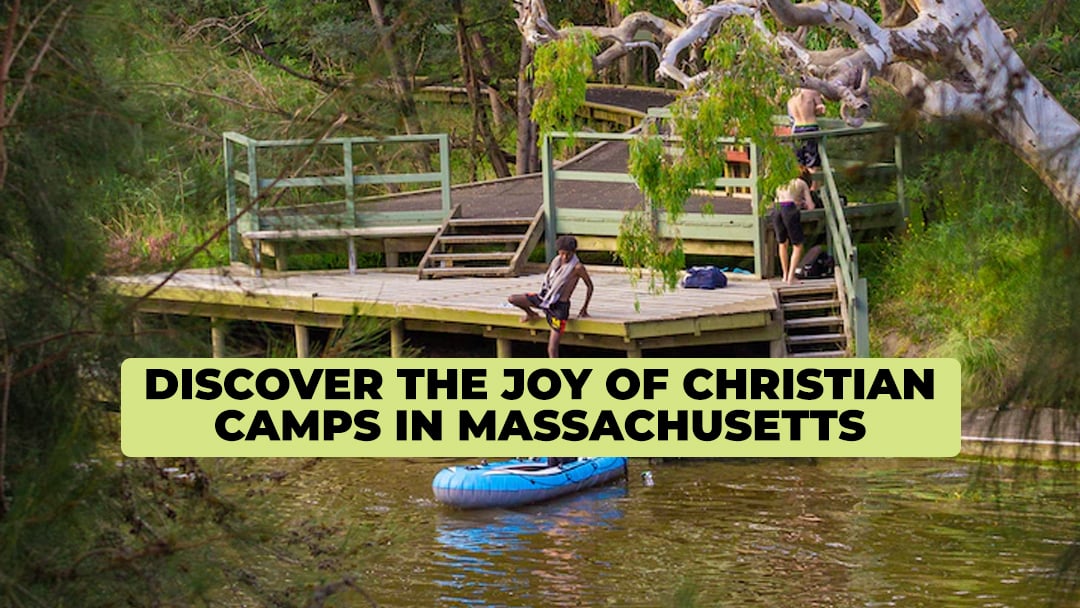Family Christian retreats offer a unique solution to this modern dilemma, providing a sanctuary where both faith and family bonds can be nurtured and strengthened. At the heart of these retreats lies the opportunity to step away from the daily grind and immerse ourselves in an environment of spiritual growth, peaceful reflection, and quality family time. Whether it’s through prayer, worship, or engaging in fun and meaningful activities together, these retreats offer a chance for families to grow in their faith while creating lasting memories.
In this guide, we will explore the various facets of family Christian retreats. From understanding their purpose to choosing the right one for your family, preparing for the journey, and making the most of the experience, this guide aims to provide you with all the information you need to embark on this spiritually rewarding journey. Whether you are looking to rekindle your family’s faith, deepen your spiritual understanding, or simply spend quality time with your loved ones in a faith-based setting, this guide is your starting point for an unforgettable spiritual adventure.
Understanding the Purpose of Family Christian Retreats
The Essence of Retreats in Christian Faith
At its core, a family Christian retreat is more than just a getaway; it’s a deliberate step back from everyday life to focus on faith, family, and personal growth. In Christian tradition, retreats have always been a vital practice, offering a time for reflection, prayer, and a deeper connection with God. It’s a time to renew one’s spiritual vitality, often lost in the hustle and bustle of daily routines.
Strengthening Family Bonds through Faith
One of the primary purposes of these retreats is to strengthen family bonds in a faith-centered environment. In a world where family time often competes with countless distractions, a Christian retreat provides a sacred space for families to come together, share experiences, and grow in their faith collectively. These shared spiritual experiences can foster deeper understanding, patience, and love among family members, virtues that are foundational in Christian teachings.
Spiritual Renewal and Growth
Retreats offer an opportunity for each family member to explore and deepen their personal faith. This spiritual deepening is nurtured through various activities like Bible studies, worship services, and guided meditations. For children and teenagers, it’s an opportunity to explore biblical teachings in a setting that is both fun and spiritually enriching, making religion more relatable and impactful in their lives.
Restoration and Reflection
Away from the distractions of daily life, retreats provide a peaceful haven for contemplation and restoration. In these serene settings, families can reflect on their lives, their relationships with each other, and their relationship with God. This time for reflection is crucial for personal growth and understanding, allowing individuals and families to return to their daily lives rejuvenated and with a renewed sense of purpose.
Building a Community of Faith
Family Christian retreats also serve to connect families with a broader community of believers. This communal aspect reinforces the sense of belonging to a larger family of faith, offering support, encouragement, and the sharing of diverse spiritual journeys. These connections can be a source of strength and inspiration, reminding us that we are part of a larger, interconnected Christian community.
Choosing the Right Retreat: Factors to Consider
- Identifying Your Family’s Spiritual Needs and Goals: The first step in selecting the right retreat is understanding your family’s spiritual needs and goals. Are you seeking a deep, immersive Bible study experience, or are you looking for a more relaxed setting with a mix of recreational activities and spiritual sessions? This clarity will guide you in choosing a retreat that aligns with your family’s expectations and spiritual journey.
- Location and Setting: The location of the retreat can significantly impact your experience. Some families may prefer a serene, secluded setting in nature, offering a sense of escape and tranquility. Others might opt for a more accessible location, perhaps closer to cultural or historical sites, adding an educational aspect to their retreat. Consider the type of environment that will best foster spiritual reflection and relaxation for your family.
- Duration and Timing: Retreats can vary from weekend getaways to week-long stays. Consider what duration works best for your family in terms of time commitment and the level of immersion you’re looking for. Also, factor in the timing – whether it aligns with school holidays, work schedules, and other commitments.
- Types of Retreats: There are various types of family Christian retreats, each offering a unique experience. Some focus heavily on worship and biblical teachings, while others incorporate outdoor adventures, arts, and crafts, or service projects. Understanding the types of activities and the overall theme of the retreat is crucial in selecting one that matches your family’s interests and spiritual appetite.
- Age-Appropriate Programs: If you’re traveling with children or teenagers, check if the retreat offers age-appropriate programs and activities. These specialized programs can enhance your children’s experience, making the retreat enjoyable and spiritually enriching for them as well.
- Accommodation and Facilities: Consider the type of accommodation provided. Are you comfortable with basic facilities, or are you looking for something more comfortable or luxurious? Also, check for amenities like dining options, recreational areas, and any specific needs such as Wi-Fi or accessibility features for family members with disabilities.
- Cost and Budget: Retreats come with various price tags, depending on the location, duration, and amenities offered. Set a budget for your retreat experience and look for options that offer a good balance between cost and the quality of the spiritual experience.
- Research and Reviews: Before making a decision, research thoroughly. Read reviews from other families who have attended the retreats. Their insights can provide valuable information on what to expect and whether a particular retreat aligns with your family’s needs.
- Spiritual Guidance and Leadership: Consider the retreat’s spiritual leadership. Knowledgeable, compassionate leaders who can connect with participants of all ages can greatly enhance the retreat experience.
Choosing the right family Christian retreat involves balancing various factors – spiritual goals, location, duration, type of retreat, and budget, among others. By carefully considering these elements, you can select a retreat that not only fulfills your family’s spiritual needs but also provides a memorable and transformative experience.
Preparing for Your Retreat: What to Pack and Expect
Mental and Spiritual Preparation
Before delving into the practicalities of packing, it’s essential to prepare mentally and spiritually for the retreat. Encourage your family to set personal goals for the retreat, such as deepening their understanding of certain biblical principles, strengthening family bonds, or seeking peace and relaxation. A mindset oriented towards openness, learning, and spiritual growth will significantly enhance the retreat experience.
Packing Essentials
- Bible and Devotional Materials: Bring your Bible, devotional books, or any spiritual literature that you find uplifting. Notebooks for journaling can also be helpful for recording insights and reflections.
- Clothing: Pack according to the climate of the retreat location. Include comfortable clothes suitable for outdoor activities and more formal attire for worship services if required. Don’t forget swimwear and rain gear if applicable.
- Footwear: Comfortable shoes for walking and hiking are essential. Also, consider packing sandals or flip-flops for more relaxed settings or water activities.
- Personal Items: Remember to pack all necessary toiletries, medications, and personal hygiene products. Sunscreen and insect repellent may also be important, depending on the location.
- Health and Safety Gear: In line with the current health guidelines, pack masks, hand sanitizers, and a basic first aid kit.
- Recreational Items: Depending on the retreat and personal interests, items like sports equipment, board games, cameras, or binoculars for bird watching can enhance your experience.
- Snacks and Water Bottles: While most retreats provide meals, having some snacks and reusable water bottles can be handy for in-between meals or during outdoor activities.
What to Expect at the Retreat
- Schedule: Most retreats have a structured schedule that includes times for worship, meals, activities, and free time. Be prepared to adhere to this schedule to make the most of your retreat experience.
- Activities and Sessions: Expect a mix of group activities, worship sessions, and perhaps workshops or seminars. There may also be opportunities for individual or family-based activities.
- Community Living: Retreats often involve community living aspects, such as shared dining areas or group activities. Embrace these opportunities to connect with other families and individuals.
- Quiet and Reflection Time: Many retreats include designated times for quiet reflection, meditation, or personal prayer. This can be a valuable time for spiritual growth and introspection.
- Disconnecting from Technology: Retreats are an opportunity to disconnect from the digital world. Be prepared to limit the use of phones, tablets, and other devices to fully engage in the retreat experience.
Preparing for a family Christian retreat involves both practical and spiritual preparations. By packing appropriately and setting the right expectations, your family can fully engage in the experience, allowing for a more meaningful and enriching spiritual journey.
Activities and Programs Typically Offered
When it comes to family Christian retreats, a diverse range of activities and programs are typically offered to cater to the varying interests and spiritual needs of families. These activities are designed not just for enjoyment, but also to nurture faith, encourage family bonding, and provide opportunities for personal growth and reflection. Here’s a look at some of the typical offerings you might find at a family Christian retreat:
Worship and Prayer Sessions
Retreats often feature structured times for worship and prayer, creating a communal space for families to connect with God and each other. These sessions may include praise and worship music, scripture readings, and guided prayers, allowing families to immerse themselves in a shared spiritual experience.
Bible Studies and Spiritual Workshops
To deepen understanding of Christian teachings, retreats often organize Bible study sessions and spiritual workshops. These are tailored to various age groups, ensuring that both adults and children can engage with biblical teachings at an appropriate level. Workshops might cover topics like applying faith in daily life, understanding the Bible, and learning to live out Christian values.
Outdoor Adventures and Nature Activities
Many retreats take advantage of their natural settings to offer outdoor activities such as hiking, canoeing, or camping. These activities not only provide fun and relaxation but also allow families to appreciate God’s creation, fostering a sense of awe and gratitude for the natural world.
Arts and Crafts
For a creative outlet, retreats often include arts and crafts sessions. These activities can be both fun and reflective, providing a way for individuals, especially children, to express their faith and creativity. Activities might include painting, pottery, or crafting items that have a spiritual significance.
Family Bonding Activities
Retreats are designed to strengthen family bonds, and as such, they often include activities that families can do together. These might range from team-building exercises to family-oriented games and challenges. Such activities encourage cooperation, communication, and shared joy, vital components of a strong family unit.
Age-Appropriate Programs for Children and Teenagers
Recognizing that children and teenagers have different spiritual and recreational needs, retreats often offer specialized programs for these age groups. These might include age-appropriate Bible lessons, youth-oriented worship sessions, and games and activities that engage young minds while fostering a sense of belonging and community.
Service and Community Projects
Some retreats incorporate service projects or community outreach activities. Participating in these projects allows families to put their faith into action, serving others and making a positive impact on the local community. This experience can be profoundly fulfilling and eye-opening, especially for younger family members.
Quiet Reflection and Meditation Areas
Retreats typically provide spaces for quiet reflection and meditation. These peaceful areas encourage individuals and families to spend time in personal prayer, contemplation, or reading scripture. This quiet time is essential for internalizing the retreat experience and finding personal spiritual insights.
The activities and programs offered at family Christian retreats are thoughtfully designed to cater to a wide range of interests and spiritual needs. Whether it’s through engaging Bible studies, exciting outdoor adventures, creative arts and crafts, or meaningful service projects, these activities work in concert to provide a holistic retreat experience that nourishes the body, mind, and spirit.
The Role of Community in Christian Retreats
The concept of community holds a special place in the heart of Christian teachings, and this is profoundly reflected in family Christian retreats. These retreats are not just about individual or family spiritual growth; they are also about being part of a larger community of believers. The role of community in these retreats is multifaceted, offering support, fellowship, shared experiences, and a sense of belonging.
Fostering Fellowship and Support
At the core of Christian retreats is the opportunity to meet and interact with other families and individuals who share similar faith values. This fellowship is vital, as it provides a support network where individuals can share their experiences, challenges, and insights. It’s a chance to learn from others, offer support, and build relationships that often extend beyond the retreat.
Sharing Diverse Spiritual Journeys
Every family and individual brings a unique spiritual journey to the retreat. These diverse perspectives enrich the community experience, as participants can learn from each other’s stories and spiritual practices. This exposure to different ways of living out faith can be both inspiring and educational, offering new insights and approaches to faith that may not have been considered before.
Group Worship and Shared Spiritual Practices
Participating in group worship and shared spiritual practices, such as communal prayers, singing hymns, and participating in group Bible studies, creates a powerful sense of unity and collective devotion. These activities reinforce the feeling of being part of a larger body of believers, emphasizing the communal aspect of Christian faith.
Learning and Growing Together
Retreats often include group discussions, workshops, and seminars that encourage collective learning. These sessions provide a platform for families to discuss and explore their faith in a group setting, allowing for a deeper understanding of Christian teachings and how they apply to everyday life. This communal learning experience fosters a sense of growth not just as individuals or families, but as part of a broader Christian community.
Building a Network of Christian Families
Retreats provide the opportunity to build a network of Christian families that can continue to support each other after the retreat has ended. This network can be a source of encouragement, advice, and friendship, offering a sense of continuity and connection that enriches participants’ everyday Christian lives.
Serving Together
Many retreats incorporate elements of service, whether within the retreat community or in the wider local area. Engaging in service projects together strengthens the community bond and puts faith into action. It’s a practical demonstration of Christian principles like compassion, kindness, and service to others.
The Importance of Intergenerational Interaction
Family Christian retreats often bring together individuals of all ages, from children to seniors. This intergenerational interaction is a valuable aspect of the retreat experience. It allows for the sharing of wisdom, experiences, and faith across different stages of life, enriching the spiritual journey for all involved.
In essence, the role of community in Christian retreats is integral to the overall experience. It offers a space for shared experiences, mutual support, and collective spiritual growth. This community aspect not only enriches the retreat experience but also strengthens each participant’s faith journey, emphasizing that being a Christian is not just a personal journey but also a communal one.
Finding Solitude and Reflection Time
Amidst the communal activities and bustling schedule of a family Christian retreat, finding moments of solitude and reflection is crucial for personal spiritual growth and inner peace. These quiet times offer a respite from the busy world, allowing individuals and families to connect more deeply with God, reflect on their faith journey, and internalize the experiences and lessons of the retreat.
- The Importance of Personal Reflection: Solitude provides a valuable opportunity for personal reflection and prayer. It allows individuals to process their thoughts and emotions away from the distractions of daily life. This time can be used for introspective activities like reading scripture, journaling, or simply sitting in contemplation. Such practices help in solidifying personal convictions and understanding the impact of the retreat on one’s spiritual life.
- Designated Quiet Spaces: Many retreats recognize the importance of solitude and offer designated quiet spaces for reflection. These areas, whether they are peaceful gardens, private chapels, or serene corners, provide a tranquil environment conducive to meditation and prayer. Retreat participants are encouraged to utilize these spaces to find peace and connect with God in a more intimate setting.
- Encouraging Family Reflection: While personal solitude is important, retreats also often facilitate family reflection time. This can be a special time for families to come together, share their individual experiences and insights, and discuss how they can incorporate the spiritual lessons learned into their family life. It’s a chance to listen to each other and grow together in faith and understanding.
- Guided Meditation and Prayer Sessions: Some retreats offer guided meditation or prayer sessions, which can help individuals and families in focusing their thoughts and prayers. These guided sessions can be particularly helpful for those who are new to the practice of meditation or who find it challenging to quiet their minds.
- Balancing Community Interaction with Solitude: Finding the right balance between participating in community activities and spending time in solitude is key to a fulfilling retreat experience. Retreat organizers often structure the schedule to allow for both, recognizing that community engagement and personal reflection time are both vital for spiritual growth.
- The Role of Nature in Reflection: Many retreats are set in natural, serene environments, leveraging the calming effect of nature to aid in reflection. Time spent in nature — whether it’s a walk in the woods, sitting by a lake, or just enjoying a sunrise or sunset — can be profoundly restorative and inspiring for both personal meditation and family discussions.
- Post-Retreat Reflection: The practice of reflection should not end with the retreat. Participants are encouraged to continue finding time for solitude and reflection in their daily lives. This ongoing practice helps in maintaining the spiritual momentum gained during the retreat and integrating the lessons learned into everyday life.
Finding solitude and reflection time during a family Christian retreat is essential for a deeper spiritual connection and personal growth. It complements the communal activities and helps individuals and families to internalize their experiences, providing a foundation for continued spiritual development long after the retreat has ended.
Health and Safety Considerations
Ensuring the health and safety of all participants is a top priority at family Christian retreats. These retreats are designed to be a sanctuary for spiritual growth and family bonding, and part of creating a nurturing environment involves addressing various health and safety concerns. Here are some key considerations that are typically addressed:
Adherence to Health Protocols
Given the communal nature of retreats, it’s essential to follow recommended health protocols, especially in light of public health concerns like the COVID-19 pandemic. This may include measures such as social distancing, wearing masks in communal areas, regular sanitization of facilities, and health screenings upon arrival.
Accommodating Dietary Needs and Allergies
Retreats often cater to a variety of dietary needs and preferences, including allergies, vegetarian or vegan options, and other specific dietary requirements. It’s important for participants to communicate any such needs in advance so that the retreat can make the necessary arrangements.
First Aid and Medical Assistance
Having access to first aid and medical assistance is crucial. Most retreat centers are equipped with basic first aid kits and have staff trained in basic first aid procedures. For retreats located in more remote areas, it’s important to have a plan for accessing medical care in case of emergencies.
Safe Facilities and Accommodations
The safety of the facilities and accommodations is another important consideration. This includes ensuring that sleeping areas, dining halls, and activity spaces are safe, clean, and well-maintained. For families with young children or members with disabilities, it’s crucial to ensure that the environment is accessible and child-friendly.
Safety During Activities
For retreats that offer outdoor and physical activities, ensuring the safety of participants is essential. This includes providing proper equipment, having trained staff to lead activities, and ensuring that all activities are conducted in a manner that prioritizes safety.
Mental and Emotional Well-being
The health and safety considerations extend beyond the physical to include mental and emotional well-being. Retreats should provide a supportive environment where participants feel safe to explore their spirituality. For those who may need it, access to pastoral care or counseling should be available.
Emergency Preparedness
Being prepared for emergencies, such as natural disasters or other unforeseen events, is critical. This includes having evacuation plans, emergency contacts, and backup systems in place to ensure the safety and well-being of all participants.
Communicating Health and Safety Policies
Clear communication of health and safety policies to all participants is key. This helps in setting the right expectations and ensures that everyone is aware of the measures in place to keep the retreat safe and enjoyable for everyone.
Health and safety considerations are an integral part of planning and conducting family Christian retreats. By addressing these concerns proactively, retreat organizers can create a secure and healthy environment where families can focus on their spiritual journey without undue worry about their physical well-being.
Budgeting for a Retreat: Tips and Tricks
Planning a family retreat can be a spiritually enriching experience, but it also requires careful financial planning to ensure it’s both affordable and enjoyable. Budgeting for a retreat doesn’t mean compromising on the quality of the experience; rather, it’s about making smart choices that maximize value while minimizing unnecessary expenses. Here are some tips and tricks to help you budget effectively for your family Christian retreat:
1. Early Planning and Booking
- Advance Reservations: Booking your retreat well in advance can often secure you better rates. Many retreat centers offer early-bird discounts, so keep an eye out for these opportunities.
- Off-Peak Discounts: Consider going on a retreat during off-peak times. Rates are often lower outside of popular holiday seasons or weekends.
2. Setting a Realistic Budget
- Assessing Costs: Start by creating a comprehensive budget that includes all potential costs such as accommodation, travel, food, activities, and any additional fees.
- Prioritizing Expenses: Decide what aspects of the retreat are most important to your family. Allocate more of your budget to these areas and look for ways to save in others.
3. Travel and Transportation
- Economical Travel Options: Look for the most cost-effective travel options. This could mean driving to the retreat instead of flying, or using public transportation.
- Carpooling: Consider carpooling with another family. This can split the cost of gas and make the journey more enjoyable.
4. Accommodation Choices
- Shared Accommodations: Some retreats offer shared accommodation options, which can be more budget-friendly than private rooms.
- Camping Options: If the retreat center allows, camping can be a cost-effective and fun way to experience the retreat.
5. Meal Planning
- Self-Catering Options: Check if the retreat center has self-catering facilities. Preparing your own meals can be a significant cost saver.
- Packing Snacks: Bring your own snacks and drinks to avoid buying them at higher prices on site.
6. Opting for Free or Low-Cost Activities
- Nature-Based Activities: Take advantage of free activities such as hiking, swimming, or exploring nature.
- Community Activities: Participate in community-led workshops or activities, which are often included in the retreat cost.
7. Being Mindful of Additional Expenses
- Souvenirs and Extras: Set a budget for any additional expenses like souvenirs, extra activities, or special events that might occur during the retreat.
8. Creating a Retreat Savings Plan
- Regular Savings: Start putting aside a small amount regularly in the months leading up to the retreat. This can help spread the cost over time, making it more manageable.
Budgeting for a family Christian retreat is about planning, prioritizing, and looking for creative ways to save without diminishing the spiritual and bonding experiences the retreat offers. With thoughtful preparation, you can enjoy a fulfilling retreat experience that aligns with your family’s financial realities.
Discover the finest Christian Camps with Camp Connection!
Family Christian retreats present a unique and enriching opportunity for families to strengthen their bonds and deepen their faith together. These retreats offer a chance to step away from everyday distractions, engage in meaningful activities, and reflect in a spiritually nurturing environment. This guide has walked you through the various aspects of family Christian retreats, from understanding their purpose and selecting the right retreat, to preparing for your journey and making the most of the experience. Whether your goal is to reconnect with your family, grow in your spiritual understanding, or simply enjoy quality time in a faith-based setting, family Christian retreats provide a valuable and memorable experience. They are not just a getaway but a profound journey into the heart of family and faith.
Introducing Camp Connection: Simplifying Your Christian Camp Selection Process
Camp Connection emerges as a vital aid for those on the lookout for the ideal Christian camp. This platform streamlines the search and selection process, matching you with a camp that meets your unique needs. Whether it’s a specific camp type, location, activity set, or age group you’re after, Camp Connection guides you through the choices, enabling a well-informed decision.
With Camp Connection, the process is simplified as you can:
- Conduct searches for camps based on criteria such as location, type, and age group.
- Compare various camps to understand what each offers.
- Gain comprehensive details about camp programs, facilities, staff credentials, and reviews.
- Contact camps directly for further inquiries or to register.
If you ever feel like you’re wandering in the camp-selection wilderness, just give us a shout – contact, call, or send a text through (610) 557-1311! We’re here to guide you to that perfect camp where unforgettable adventures and deeper connections with faith, nature, and community await. Happy camping hunting! Also, If you want to know more about us just visit our Retreat Center!







